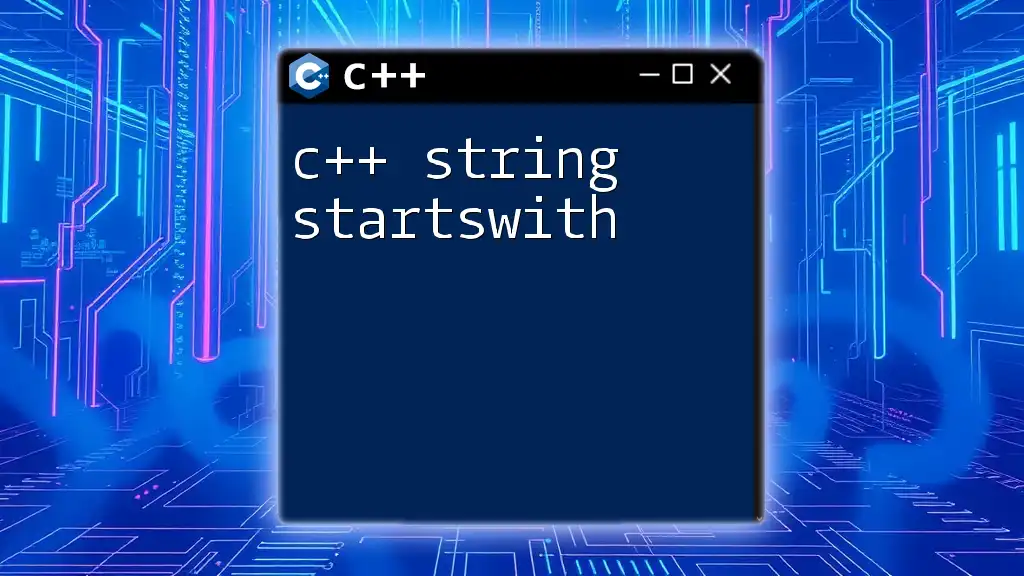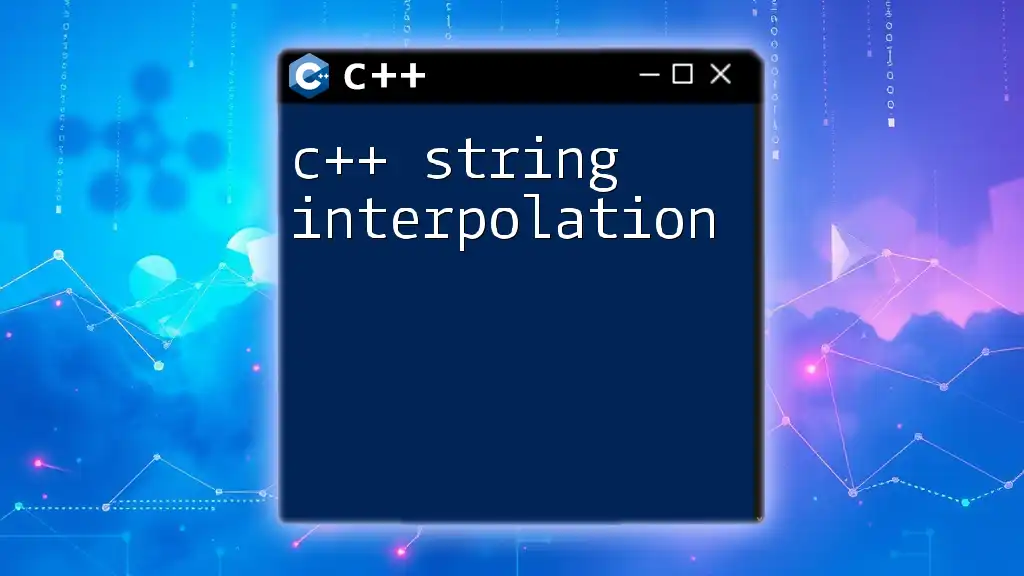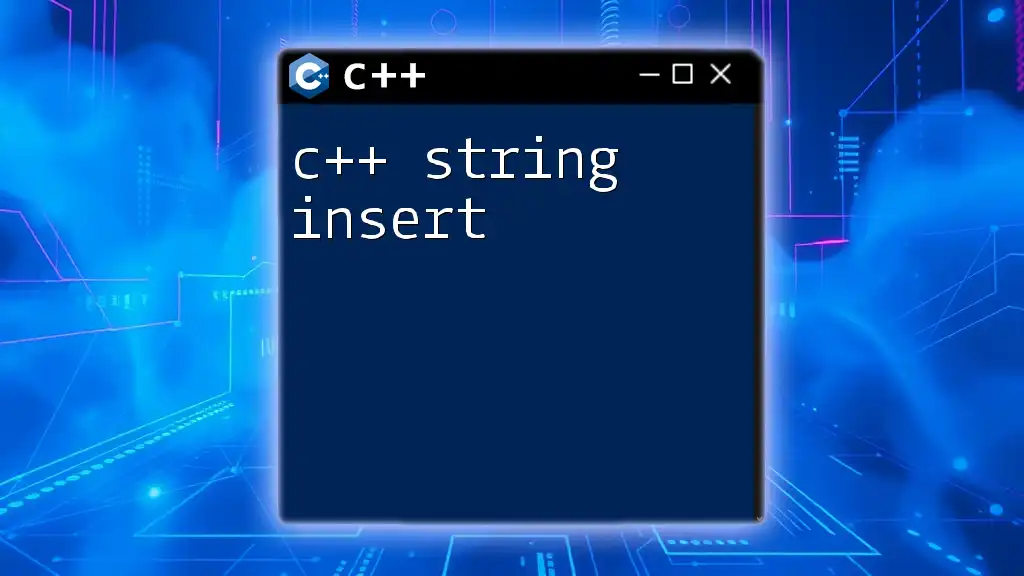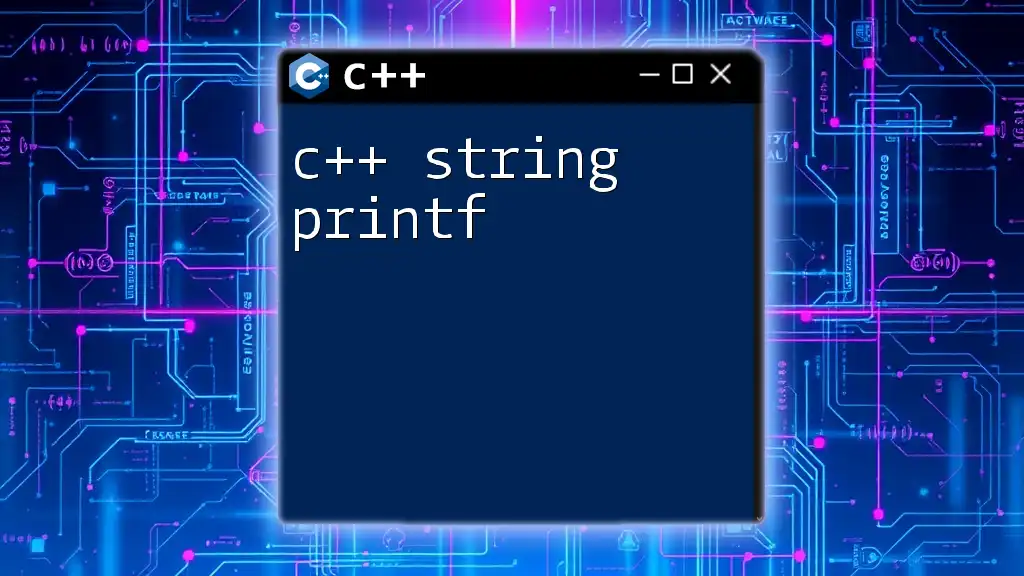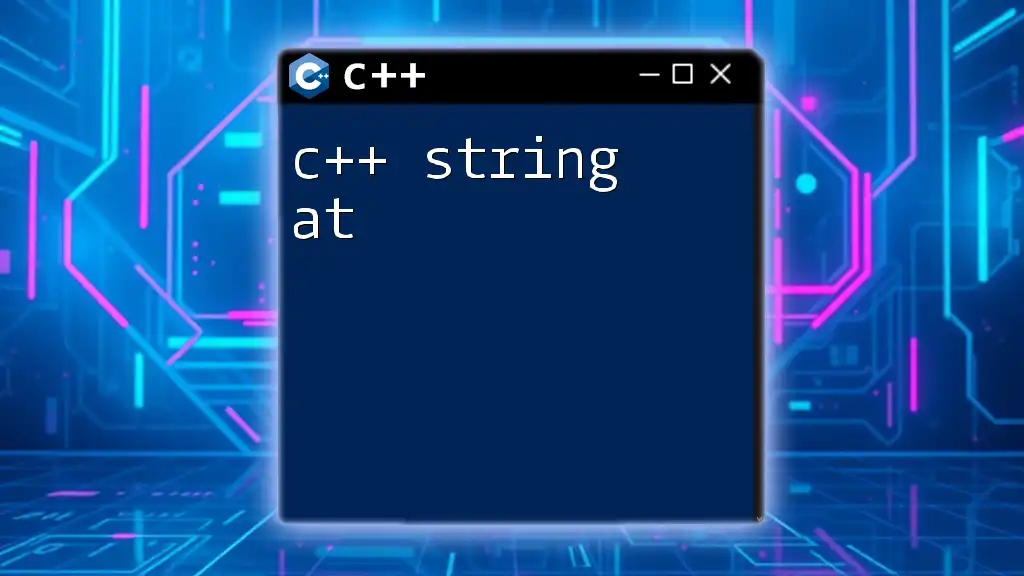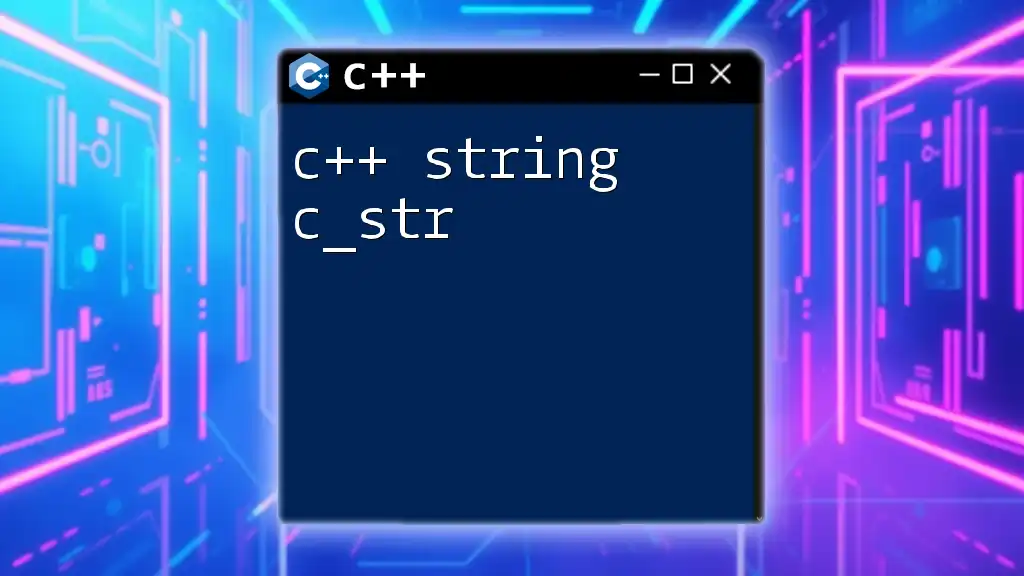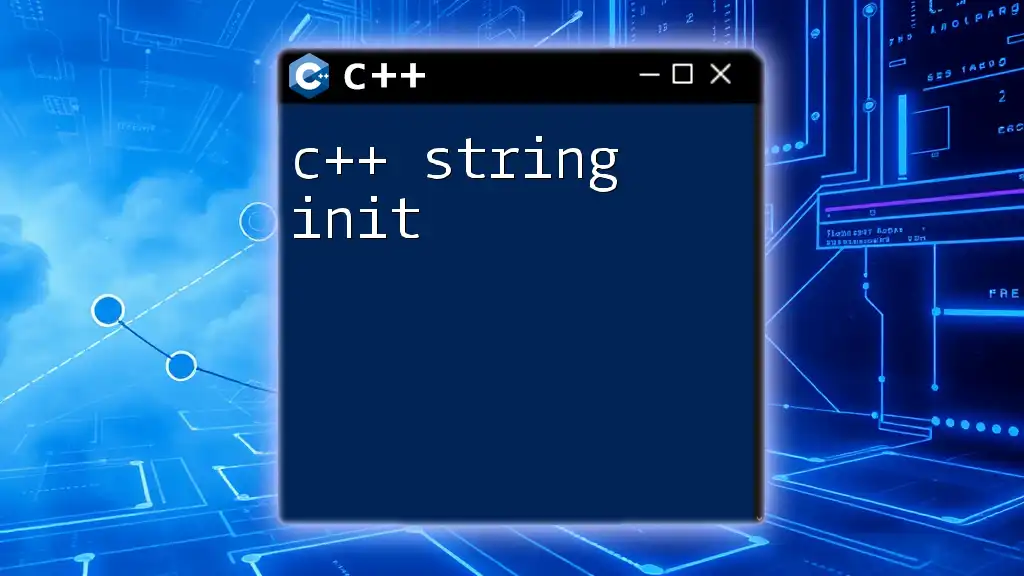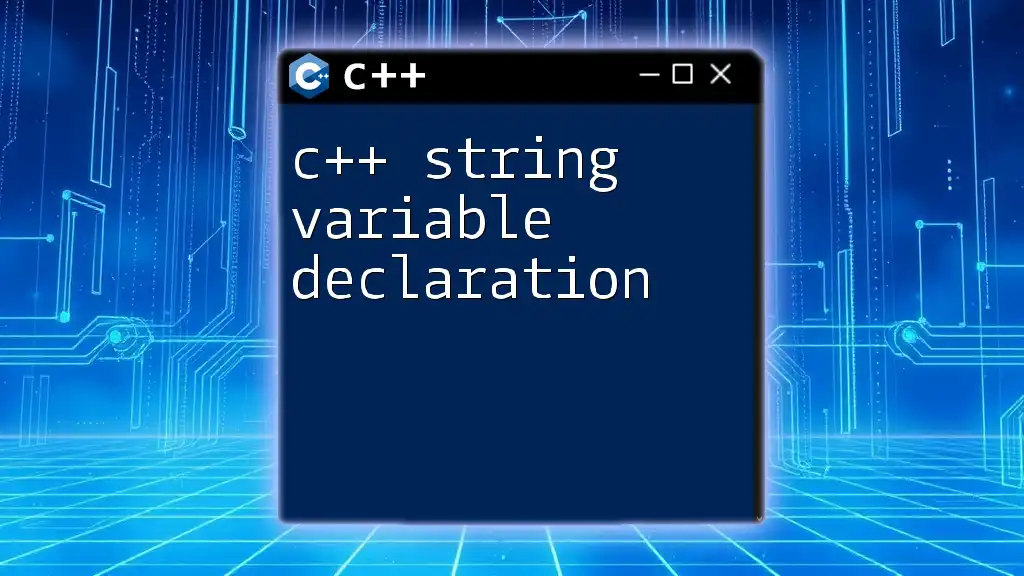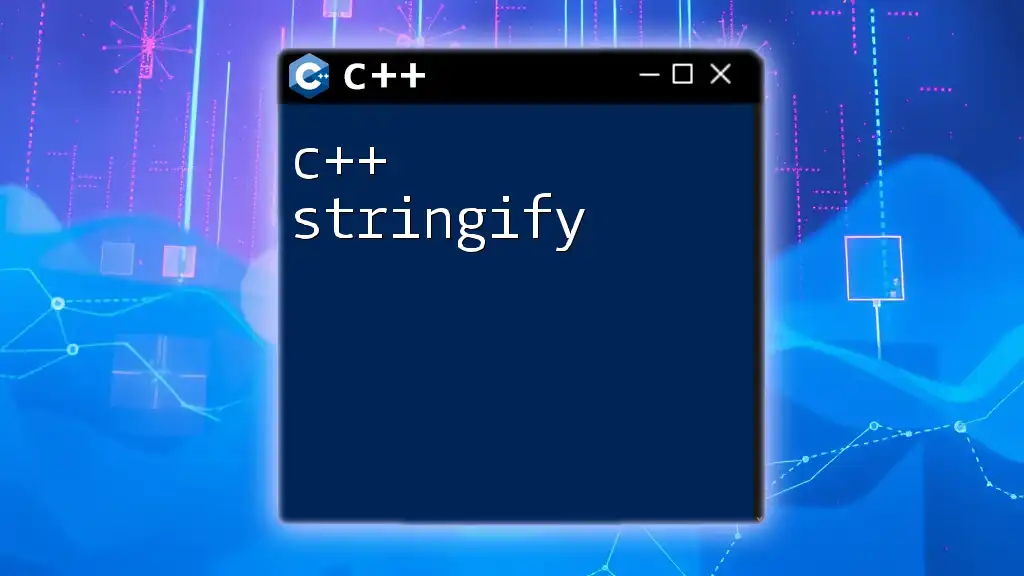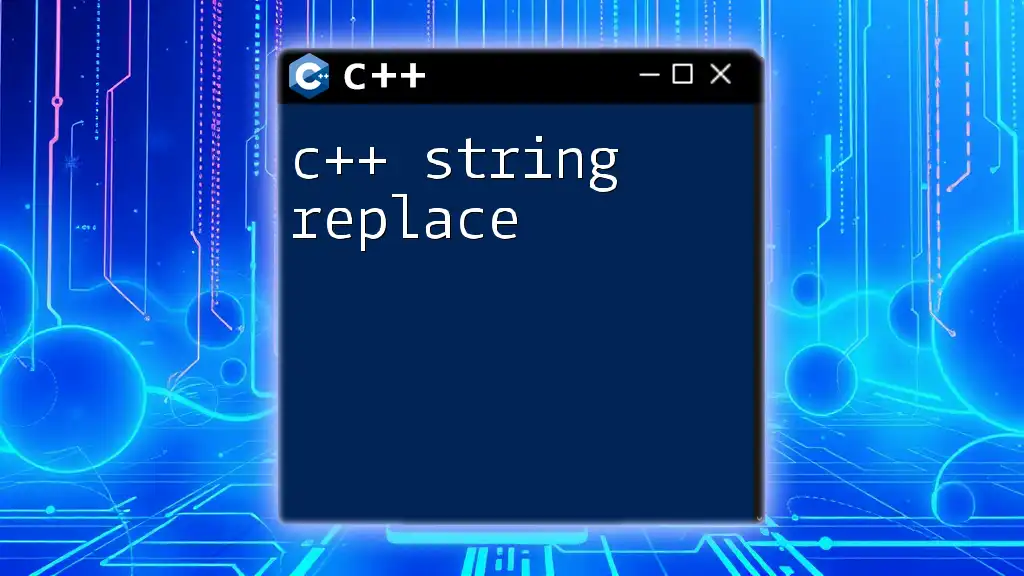In C++, to check if a string starts with a specific substring, you can use the `rfind` method from the `std::string` class, combined with a comparison to the starting index.
Here's a code snippet demonstrating this:
#include <iostream>
#include <string>
bool startsWith(const std::string& str, const std::string& prefix) {
return str.rfind(prefix, 0) == 0;
}
int main() {
std::string text = "Hello, World!";
std::string prefix = "Hello";
if (startsWith(text, prefix)) {
std::cout << "The string starts with the prefix." << std::endl;
} else {
std::cout << "The string does not start with the prefix." << std::endl;
}
return 0;
}
Understanding C++ `std::string`
What is `std::string`?
In C++, `std::string` is a powerful class that represents a sequence of characters. It is part of the Standard Library, which means it is readily available for use in most C++ projects. Unlike C-style strings (character arrays), `std::string` manages memory dynamically and provides a variety of useful member functions for manipulation.
Creating and initializing a `std::string` is straightforward:
#include <string>
std::string greeting = "Hello, World!";
With `std::string`, you don’t have to worry about memory allocation or deallocation; it's automatically handled for you, which helps in avoiding common pitfalls like memory leaks and buffer overflows.
Common Operations on `std::string`
`std::string` offers a rich set of operations, enabling manipulation of strings with ease. Some common operations include:
- Concatenation: You can combine strings using the `+` operator or `append()` method.
- Comparison: Strings can be compared using relational operators (`==`, `!=`, etc.) or the `compare()` method.
- Substring Extraction: You can retrieve a substring using the `substr()` method.
Example of concatenation:
std::string firstPart = "Hello";
std::string secondPart = "World";
std::string combined = firstPart + ", " + secondPart + "!";
Understanding these operations will serve as a foundation for more advanced string manipulations, including the use of `c++ string startswith`.
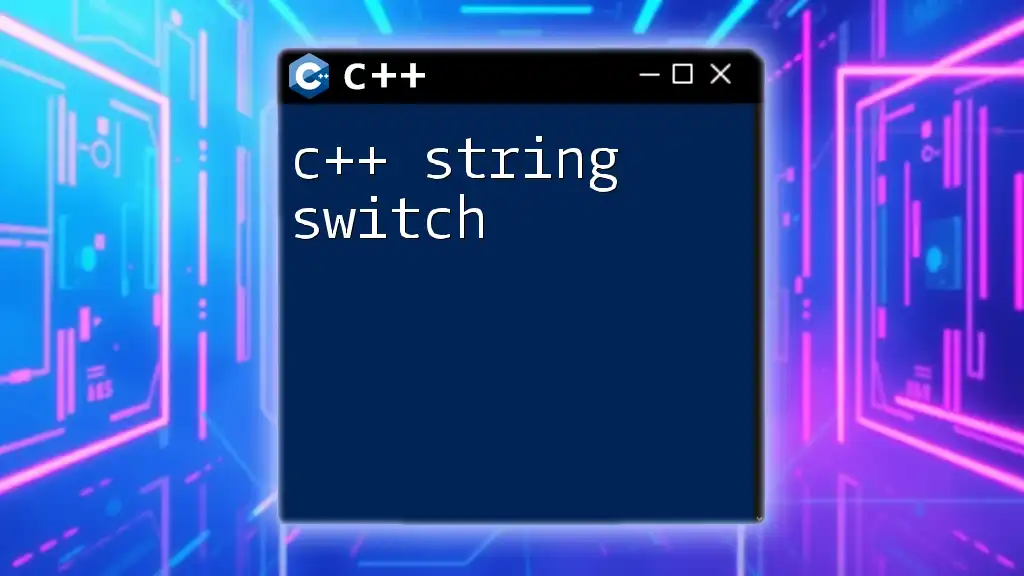
The Concept of "Starts With"
Defining "Starts With"
"Starts with" refers to the ability to determine if a given string begins with a specified substring. This check is fundamental in many programming scenarios, including input validation, parsing commands, and filtering data.
For example, consider a command-line application that recognizes various commands, such as `calc`, `exit`, or `help`. Verifying that user input starts with these predefined commands is essential to correct processing.
Why is it Important?
The importance of this functionality extends to various applications. It helps in scenarios like:
- Input Validation: Ensuring that user input conforms to expected formats.
- String Parsing: Extracting meaningful components from strings, particularly when working with data streams.
- Command Recognition: Filtering commands in applications with multiple functionalities.
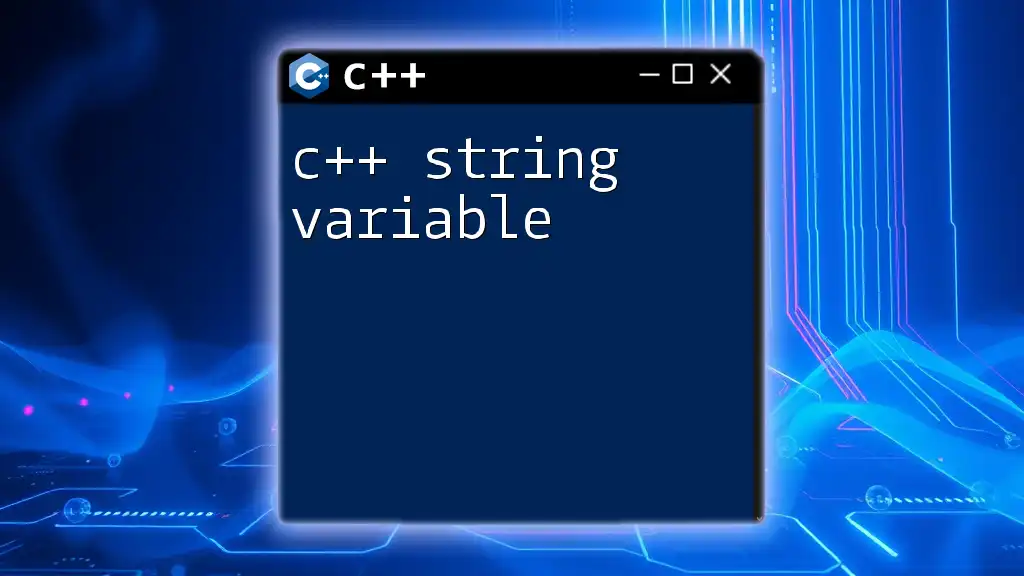
C++ String StartsWith: Methods to Achieve This
Using the `compare` Function
One common way to determine if a string starts with a specific substring is by using the `compare()` function. The `compare()` method allows you to specify the starting position and the length of the substring to compare.
Here’s a code snippet that demonstrates this approach:
std::string str = "Hello, World!";
std::string prefix = "Hello";
if (str.compare(0, prefix.size(), prefix) == 0) {
std::cout << "The string starts with the prefix." << std::endl;
}
In this example, we check if `str` starts with `prefix` by comparing the beginning of `str` to `prefix`. The `compare()` method returns 0 if the specified substring matches.
Using `find` Function
Another method is to employ the `find()` function, which can be used to check if the prefix occurs at the start of the string. The `find()` function returns the position of the first occurrence of the substring or `std::string::npos` if it is not found.
Here’s how you can use it:
std::string str = "Hello, World!";
std::string prefix = "Hello";
if (str.find(prefix) == 0) {
std::cout << "The string starts with the prefix." << std::endl;
}
In this instance, we verify that the prefix is located at the index `0`, indicating it begins the string.
Custom StartsWith Function
While the above methods work well, you might want to create a custom function for better readability or for specific needs in your application.
Here's an example of such a function:
bool startsWith(const std::string& str, const std::string& prefix) {
return str.size() >= prefix.size() && str.compare(0, prefix.size(), prefix) == 0;
}
// Usage
if (startsWith("Hello, World!", "Hello")) {
std::cout << "The string starts with the prefix." << std::endl;
}
Using a custom function enhances readability and abstraction in your code, making it clear that you are checking for a prefix.
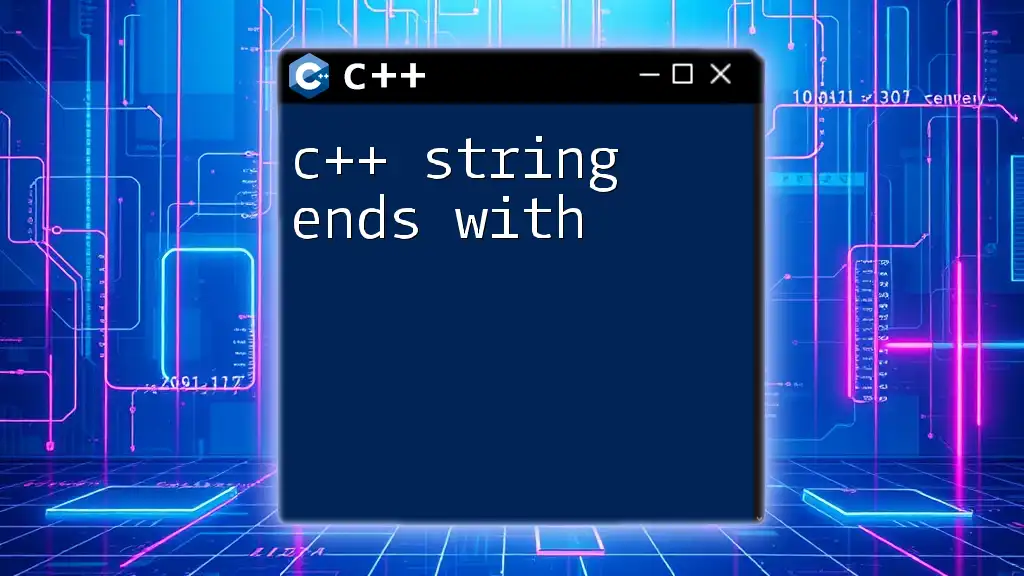
Beyond Basic Checks: Advanced Uses
Case Sensitivity
By default, string comparisons are case-sensitive. This means that `"Hello"` is not considered the same as `"hello"`. In scenarios where you need to ignore case, you can modify your approach. Here's an example of a case-insensitive `startsWith` function:
#include <algorithm>
bool startsWithIgnoreCase(const std::string& str, const std::string& prefix) {
return std::equal(prefix.begin(), prefix.end(), str.begin(),
[](char a, char b) { return tolower(a) == tolower(b); });
}
This method uses `std::equal` along with `tolower()` to perform the comparison, effectively ignoring case differences.
Performance Considerations
When working with very large strings or performing frequent checks, performance becomes a pertinent consideration. The methods described, particularly `compare()`, are quite efficient, but it's important to be aware of the potential computational cost when checking long strings or doing numerous comparisons.
In high-performance applications, especially where string manipulation is frequent, profiling and optimization should be conducted as needed.

Conclusion
In summary, the ability to check if a string starts with a specified substring is a crucial feature of string manipulation in C++. By leveraging `std::string` alongside the provided methods, such as `compare()` and `find()`, you can efficiently apply this functionality in various programming tasks. Custom functions, case-insensitivity options, and performance considerations further enhance the versatility of string operations in C++.
As you explore C++ and improve your skill set, implementing these techniques will make string handling more intuitive and effective in your projects. Continue to experiment with `std::string` to unlock the full potential of text processing in your applications.
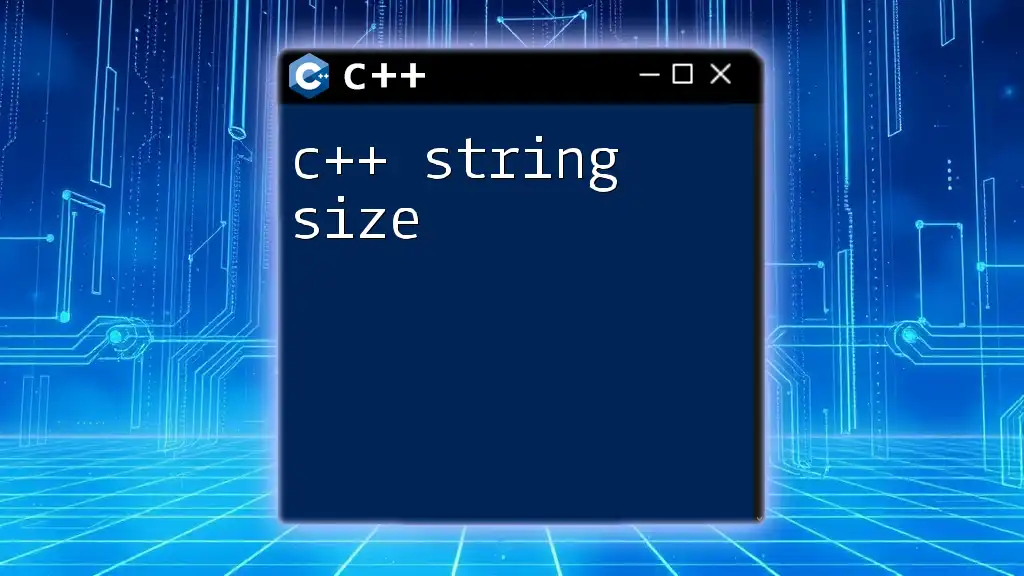
Additional Resources
For further exploration of string manipulation in C++, refer to the [C++ Standard Library Documentation](https://en.cppreference.com/w/cpp/string/basic_string) and other programming resources to deepen your understanding of this essential topic.
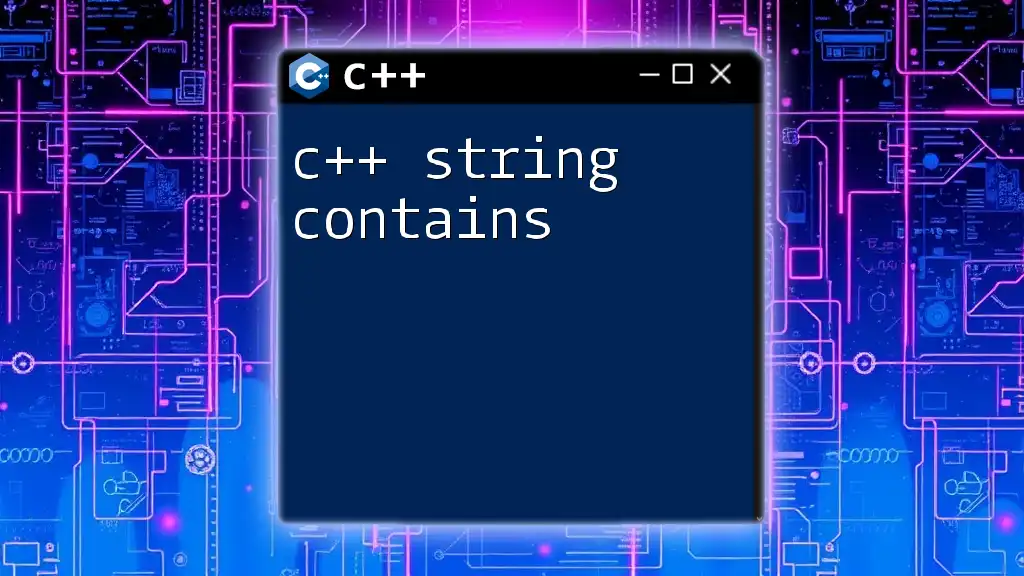
FAQs
What is the difference between `startsWith` and `compare`?
The primary difference lies in their implementation and usage. The `compare` method is focused on comparing specific segments of strings, while a `startsWith` function explicitly checks if a string begins with a given substring, enhancing code readability and intent.
Can `startsWith` work with Unicode strings?
Yes, but special consideration is necessary for encoding. Ensure that your comparison methods handle UTF-8 or other encoding formats properly to avoid mismatches.
How does `startsWith` handle empty strings?
In the context of this discussion, if either the string or the prefix is empty, a careful implementation should treat these cases thoughtfully. An empty prefix should return true when compared with any string, while an empty string, when compared to a non-empty prefix, should return false.

